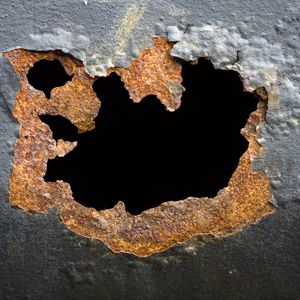Cyclic Corrosion Testing vs. Salt Spray Testing: The Battle for Automotive Durability
Corrosion testing services commonly offer two options when you need to measure a metal's rate of corrosion: salt spray testing and cyclic corrosion testing. After failure analysis, you would then use the data to find the best possible corrosion prevention method.
The two forms of testing share similarities as well as differences. Here, we'll talk about each and why you'd choose one over the other.
The Role of Corrosion Testing in the Automotive Industry
Few industries need to be more concerned about corrosion than automotive companies. Most individual parts in automobiles are made of metal, meaning they undergo corrosion. Left alone for too long, corrosion can advance rapidly, dissolving the metal until the component loses its cohesive structure and fails. If you own a vehicle, the worst time for one of its parts to fail is while you're driving it.
All metals corrode, and none is invincible to the process. You can't stop corrosion, but you can drastically reduce the rate at which it occurs through corrosion testing, failure analysis and forming a customized solution. This can improve the corrosion resistance and longevity of each individual part of a vehicle.
There are several approaches an accelerated corrosion test can take, including salt spray testing and cyclic corrosion testing.
Salt Spray Testing: The Classic Method for Corrosion Evaluation
A traditional salt spray test has been used for decades to measure a metal's corrosion rate. Salt, which can greatly speed up the rate of corrosion on any material, is made into a solution that forms a "salt fog." The tester sprays this salt solution on the material inside a salt spray chamber at a controlled temperature.
The analyst uses failure analysis to measure the rate of corrosion within the salt fog. They then look at the data to create a customized corrosion-resistant solution that's perfect for that particular metal. Usually, this takes the form of a coating applied to the exposed metal.
Cyclic Corrosion Testing: A Modern Approach to Material Durability
Similar to salt spray testing, cyclic corrosion tests use techniques that greatly increase the rate of corrosion, allowing the tester to measure it and come up with a solution. But there are a few differences.
A salt spray test uses a "steady-state" environment during testing that never changes. In contrast, a cyclic corrosion test alternates the environment to be either dry or wet with a varying temperature, simulating outdoor exposure and better replicating the real-world applications of vehicle parts. This method can be used for other types of tests, including general, crevice and galvanic corrosion.
Cyclic corrosion testing is done inside a cyclic corrosion test chamber. This container can:
- Apply salt spray.
- Air-dry the metal.
- Form humidity, either as condensation or controlled humidity.
The machine alternates these conditions continuously. As during salt spray testing, the tester then uses failure analysis to measure the rate of corrosion.
Because this type of test came to be much more recently, it's often considered a more modern approach to traditional steady-state salt spray testing.
Comparing Cyclic Corrosion and Salt Spray Testing: Which One to Choose?
Which method of corrosion testing you choose largely depends on the metal's intended purpose.
For example, you would probably want steady-state salt fog over a cyclic test if it's predicted to be in a steady environment. An example would be if the metal will be kept underwater in a saltwater environment.
On the other hand, an automobile body might be more suited to cyclic corrosion testing because it would be expected to go through the same conditions the test simulates. The tester would be able to offer a more accurate picture of the metal's corrosion rate with cyclic testing, meaning they might also be able to offer a more effective solution.
No Matter the Method, Auto Tech Offers a Superior Solution
Whether our experts are performing a salt spray test or a cyclic corrosion test, you can be sure these experienced professionals are using top-grade equipment made by Auto Tech. We use the largest environmental testing facility in the U.S. while being the leading producer of advanced corrosion test equipment.
Contact us today to discover what we can do for you.

